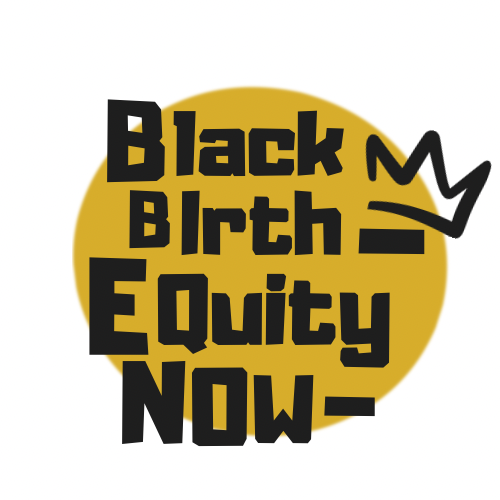What Drives Us
Across the U.S., non‑Hispanic Black women continue to face dramatically higher maternal mortality rates—approximately 50.3 deaths per 100,000 live births in 2023, more than three times the rate for White women (14.5) and significantly higher than rates for Hispanic (12.4) and Asian women (10.7). Additionally, Black women experience higher rates of life‑threatening complications like preeclampsia, cardiomyopathy, hemorrhage, and embolism—often tied to structural racism, implicit bias in healthcare, and chronic stress, even when controlling for income or education. Because of this, we strive to create lasting systems change by addressing the root causes of maternal health disparities.
The Way We Work
We believe those most impacted by health inequities must lead the solutions. Because of this, we hold ourselves accountable first and foremost to Black mothers and birthing people navigating systems that have historically failed them. Their voices guide every stage of our work—from shaping program design through listening sessions and surveys, to informing advocacy priorities through storytelling, focus groups, and community advisory councils. We don’t just serve Black mothers and birthing people—we work and stand in solidarity with them.
Current Programs & Initiatives
-
In collaboration with 4th Trimester Arizona, Arizona State University Maternal and Child Health Translation Research Team’s Policy Core, and the Indigenous Lactation Counselor Program, we are working to expand AHCCCS (Arizona Medicaid) policies to provide coverage for breastfeeding support and lactation consultations for low-income families. In addition, we aim to increase access to board-certified lactation consultants in Indigenous and Black communities.
-
In collaboration with ASU and 4th Trimester Arizona, we launched Listen to the Villages. This IMPROVE-CIP research project works with doulas and community stakeholders to promote maternal-infant health equity in Indigenous, Black, and Latinx communities in Arizona. IMPROVE-CIP is a program of the National Institutes of Health (NIH) that focuses on issues contributing to maternal death and severe illness.



